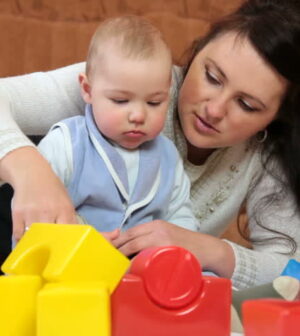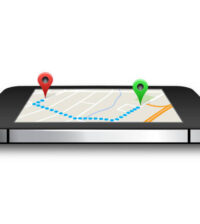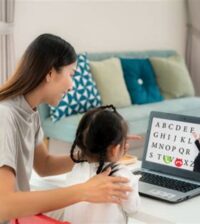- Belgium comes to Yamashita Park
- Residential Villa in Phuket Entices Remote Workers With Long-Stay Rates
- Rare pieces of French glass art at the Mirai Museum of Art
- Feast on fresh fish and seafood at the 2024 ‘Sakana’ Festival
- Would you like to ride in a Louis Vuitton gondola lift?
- Naked Snow Aquarium
- Festive lights at Yomiuriland will get you feeling the holiday vibes
Six important skills your preschooler learn through play

• Language development
• Small-muscle development
• Large-muscle development
• Emotional development
• Social development
• Mathematical thinking
As your child’s first teacher, it is important you understand what he is learning when he plays. To do this, observe him. Try to determine what skill he is practicing. Then take it a step farther by creating other opportunities for him to apply what he is learning.
Activities that help preschoolers learn
Each of the above categories develop through a variety of activities. Some overlap and some are very specific. Once you identify what skill your child is practicing you can determine what he is learning and how to help him apply his knowledge. You can start by using these common instances of learning through play to encourage growth and development in your preschooler.
LANGUAGE DEVELOPMENT
Helping children develop a good sense of language helps them better express themselves and their needs.
Activities
• Even though your preschooler may not read, label some different color baskets for him to put his things in. For instance, you can label one toys and one shoes. Then show him the labels. This will help him identify words as symbols for thought. This also allows him to use his mathematical thinking skills to sort.
• Ask him to help you build a home for one of his stuffed animals. By putting his thoughts into words he is learning how to express himself, which is one of the cornerstones of communication.
• Sing simple repetitive songs and nursery rhymes. Then add movement to the music. This requires that he listen, which is also an important component to language development.
SMALL MUSCLE DEVELOPMENT
The small-muscle group includes the hands, fingers, wrists, and eyes. Your preschooler uses his small muscles to do things like tie his shoes and brush his teeth on his own.
Activities
• Playing with puzzles is a great way for your preschooler to develop his small-muscle group. Placing puzzle pieces helps develop hand-eye coordination. Plus, when your child is successful, he will experience a sense of pride and accomplishment, which is always a good thing.
• Playing dress up is a great way to develop small muscles. At first, buttons and zippers can be challenging. Try using dressing songs and rhymes you and he make up to keep the game fun.
• Rolling a ball back and forth between the two of you helps develop the small muscles in his hands, in addition to hand-eye coordination.
LARGE MUSCLE DEVELOPMENT
The large muscle group includes those in the neck, trunk, legs, and arms. These are the muscles most used in physical play.
Activities
• We can all use a little help around the house. Let your preschooler sweep for you. This type of movement develops the large muscles in his arms and upper body.
• Imitating Mommy and/or Daddy going to work by riding his tricycle to a pretend destination works the muscles in his legs.
• Playing a good old-fashioned game of leap frog is a fantastic way to develop muscles in his arms, legs, and trunk.
EMOTIONAL DEVELOPMENT
Parents and family are most influential during this phase in your preschooler’s growth. He experiences emotions deeply and is beginning to learn how to process them and express himself.
Activities
• Pre-schoolers commonly develop fears. Using imaginary play is a good way to offset these fears. Have your child pretend he is a monster or a superhero who is capable of capturing the scary part of darkness.
• Encourage him to use art to express his feelings. By drawing pictures and having him tell you the story behind them, you are giving him an outlet to share feelings he may have otherwise kept bottled up.
• Help him identify emotions through storytelling. When you tell him a story or read a book, ask him what the characters are feeling. Are they happy, sad, excited, or scared?
SOCIAL DEVELOPMENT
As the name implies, social development is the basis of your preschooler’s relationships. These are the skills he needs to make and be a friend.
Activities
• Playing any sort of age-appropriate board game with your preschooler will help him learn how to share, which helps him develop friendships.
• Work on his cooperation and negotiation skills by asking him to help you decide what game to play.
• Encourage him to tell you a story about his family and friends. This will help him learn about relationships and identify how he belongs in his world.
MATHEMATICAL THINKING
Sorting is one of the ways your child learns to identify groups and categories. Therefore, when he sorts blocks by color, he is learning to think mathematically.
Activities
• Let him help you sort the laundry. Have him put socks in one pile and pants in another.
• Give him four spoons and four forks. Ask him to put the like ones together.
• On grocery day, let him help you in the kitchen. Have him put the vegetables in one pile and the fruit in another. It doesn’t matter if he doesn’t get this task exactly right. This also gives him an opportunity to practice his language and naming skills.


















